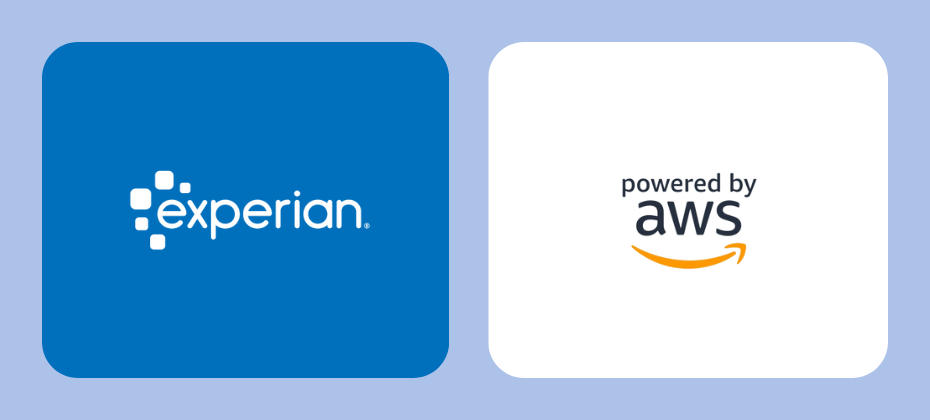
In this article…
Third-party cookies have been the foundation of targeted advertising for a long time. Around 75% of marketers worldwide rely on third-party cookies, with approximately 42.2% of websites using them to gather user data. These tiny bits of code silently track our online activities, collecting search history and product preferences to help advertisers tailor their campaigns to our needs.
However, as fears over online privacy have grown, the third-party cookie era is ending. A 2020 Deloitte survey revealed that 65% of respondents had major concerns about excessive cookie use; consumers want personalized ad experiences but don’t want to feel like marketers are tracking their every online move.
While some other search engines have already eliminated third-party cookies, Google Chrome — which holds 65% of the global browser market — is just beginning to phase them out as new alternatives are tested. Google’s third-party cookie deprecation is expected to impact marketers in a big way.
Let’s talk about what that impact will look like and how marketers can reconcile consumer demands for browsing privacy with their preference for personalized ad experiences.
What is cookie deprecation?
Cookie deprecation is a process where web browsers, like Google Chrome, phase out the use of a specific cookie type. In the context of this article, we’re referring to third-party cookies, small pieces of data stored on a device by websites a person visits.
Advertisers and other companies use third-party cookies to track a person’s actions on the web. They help those companies learn about an individual’s interests and show them targeted ads. But over time, internet users have become more aware of cookies and how much companies know about them, so browsers are phasing out third-party cookies to respect user privacy.
The timeline and reasons behind the shift
In January 2020, Google announced it would no longer allow third-party marketing cookies by 2022. Realizing it needed to find an alternative first, it pushed the deadline back several times over the years, eventually confirming that third-party cookies would be deprecated by the end of 2024 — a big deal for the advertising industry. So, what’s the motivation behind this change?
Many people are becoming increasingly worried about online privacy and the intrusiveness of third-party cookies. In recent years, lawmakers have pressured tech companies to make changes in response to their constituents’ concerns about online privacy rights. By getting rid of third-party cookies, browsers like Chrome are trying to give users more control over their data and respect privacy demands to create a more privacy-friendly browsing experience.
This shift is part of a broader trend in the digital world toward greater privacy protections, with browsers like Firefox and Safari having already phased out third-party cookies. We’ve also seen other significant moves in this direction, including the following. These regulatory efforts reflect a growing awareness of how important it is to protect data privacy and consumer rights in a world gone digital.
- Apple’s App Tracking Transparency (ATT) framework was introduced in iOS 14.5, requiring users to get permission before tracking their data across other apps or websites.
- The Global Privacy Control (GPC) strives to improve users’ control over their internet privacy by letting them signal their preferences for data sharing.
- Europe’s General Data Protection Regulation (GDPR) and California’s Consumer Privacy Act (CCPA) have strict guidelines for how companies handle personal data to prioritize transparency and user consent.
Google’s most popular browser, Chrome, recently made its first big move toward third-party cookie deprecation. On January 4, 2024, Google announced the rollout of a new “Tracking Protection” feature, limiting cross-site tracking by default. They’re doing this gradually, activating the feature for 1% of random Chrome users worldwide, about 30 million people.
Google Chrome’s cookie phase-out impact
Chrome’s third-party cookie deprecation is expected to have the farthest-reaching consequences for marketers like you, as it has almost two-thirds of the browser market worldwide. It’s important to note that this phase-out specifically targets third-party cookies, not first-party cookies, which are generated and stored by the website a user visits directly and will be unaffected by this change.
Here are a few of the impacts to prepare for.
Reduced tracking capabilities
Once third-party cookies are eliminated, you may face challenges in understanding consumer behavior across different websites. Without this tracking capability, understanding your audiences and effectively tailoring advertising campaigns might become more difficult.
Required shift in strategy
It will be key for you to adapt your advertising strategies to rely less on third-party data and more on alternative targeting methods. This shift may involve greater emphasis on contextual advertising, which targets people based on the content of the websites they visit instead of browsing history, and first-party data gathered directly from site users to personalize advertising campaigns.
Additionally, in order to move beyond reliance on cookies and third-party identifiers, activation platforms like demand-side platforms (DSPs) must evolve to identify addressable IDs within bid streams. This adaptability is essential as digital advertising shifts toward privacy and cookieless environments. By being able to recognize addressable IDs in bid streams, DSPs can help facilitate more accurate, personalized targeting and help advertisers reach their audiences across channels and devices without privacy concerns. As a marketer, you should understand the capabilities of your chosen platforms and inquire about their support for evolving targeting methods and data sources.
New compliance regulations
By limiting the ability to track users across the web, Google aims to enhance user privacy and control over their data. You’ll need to embrace privacy-centric approaches to advertising to comply with evolving privacy regulations and build trust with consumers.
Challenges posed by Google’s cookie deprecation in 2024
Marketers are responding to the announcement of third-party cookie deprecation with an eye toward innovation as they proactively seek new solutions. As of early 2024, 56% of marketers in the United States were testing cookieless alternatives. Knowing their customer acquisition will be less efficient without these cookies, they’re looking for ways to maximize the value of their existing customers, increase retention, and make better use of first-party data. Others have been slow to react due to a lack of awareness or uncertainty about how to handle the changes.
Here are some additional challenges advertisers can expect to face as third-party cookies begin to be phased out.
Impact on targeting and personalization
The decline of third-party cookies is expected to have a major impact on targeting and personalization strategies. As advertisers will no longer have access to individual browsing histories, some may struggle to reach specific audiences and deliver personalized content. As a result, they have begun to explore using first-party data and contextual targeting to preserve relevance and consumer engagement.
Attribution and measurement challenges
The future removal of third-party cookies may also make it harder to measure the effectiveness of advertising and accurately attribute conversions. Marketers are currently searching for reliable alternatives to track users across channels and touchpoints. Google’s Attribution Reporting API and private aggregation methods are being explored as potential solutions to these attribution and measurement challenges.
Data privacy and compliance challenges
Future third-party cookie deprecation makes data privacy and compliance a top priority. With the introduction of stricter regulations like GDPR and CCPA, you need to ensure your data collection and usage practices comply with privacy laws. To maintain the trust of consumers and abide by regulatory requirements, it has become essential to shift toward first-party data collection and more transparent consent mechanisms.
Lack of resources to invest in alternative solutions
One of the main challenges advertisers will face with future cookie deprecation is a lack of resources to invest in alternative solutions. Many businesses don’t have the financial resources or technical expertise to explore and implement new targeting and measurement methods.
Additionally, some companies have been reluctant to adopt new solutions because they want to thoroughly test and evaluate their efficacy. The fear of investing resources in unproven technologies or strategies has led to a cautious approach among marketers and advertisers. However, this reluctance to adapt could hinder their ability to remain competitive.
Many companies may also face logistical challenges due to the complexity of transitioning from reliance on third-party cookies to alternative data sources and targeting methods. Integrating new technologies, adjusting workflows, and retraining staff requires time and effort, adding to the complexity of the transition.
Adapting to a cookieless world
Even though third-party cookies are going away, you still have other types of data in your arsenal to help you continue reaching your audience.
Use first-party data
First-party data, collected from customers or website visitors directly, offers valuable insights into consumer behavior and preferences. By investing in proven data collection methods and analytics tools, you can understand your audience more accurately and tailor your messaging and targeting accordingly.
Explore Experian’s signal-agnostic products
Experian is leading the charge in preparing marketers for a cookieless world with our audiences and foundation built from over 200 offline data sources. Our signal-agnostic Graph supports universal IDs and enables brands to expand their existing IDs to all other digital and addressable IDs within our Graph.
Advertisers can enhance their strategies by working with Experian to enrich first-party data with our demographic and behavioral attributes to gain a better understanding of audiences without cookies. Additionally, our data collaboration solutions enable marketers to collaborate with partner data, deriving greater value and enabling deeper insights for effective marketing campaigns. Experian is future-proofing identity strategies to ensure continued marketing performance and success.
Discover alternative targeting technologies
As third-party cookies become obsolete, marketers are starting to investigate alternative targeting technologies for optimizing campaigns. These may include contextual targeting, which focuses on the content and context of a user’s web browsing activity, as well as emerging solutions like cohort-based targeting, which groups users based on shared interests and behaviors. Think of third-party cookie deprecation as the opportunity to innovate and rethink strategies that have relied too heavily on one type of technology.
Best practices for marketers in the post-cookie era
Embracing best practices for a privacy-centric advertising environment can help you maintain your effectiveness and thrive in a cookieless world. Let’s talk strategies to help you succeed in the post-cookie era.
Focus on customer consent and transparency
Having consumers opt-in to sharing their data is an excellent way to build your data pool ethically. One way to do this is by encouraging users to create accounts or log in to access exclusive content or features while providing valuable information in exchange for their data. Another way is by conducting surveys or quizzes to gather insights directly from users about their preferences, interests, and behaviors. You could also use interactive content like polls and contests to engage users and collect data. These approaches can enrich your data pool while demonstrating your commitment to respecting user privacy and preferences.
Prioritize obtaining explicit consent from users before using or gathering their data for your advertising. Implement transparent data practices by clearly communicating to consumers how you’ll use their data and providing easily accessible options to manage their privacy preferences. By building trust through transparency and respecting user choices, you can forge stronger relationships with your audience.
Enhance the customer experience with quality data
In the future absence of third-party cookies, first-party data will be paramount in helping you understand and engage with your audience effectively. Invest in strategies that will help you collect high-quality data directly from customers, such as through interactive content, preference centers, and loyalty programs. By obtaining and using accurate, relevant data, you can provide personalized experiences that resonate with audiences and drive meaningful engagement.
Collaborate with evolving technology platforms
As Google’s cookie deprecation reshapes advertising, it will be important to collaborate closely with technology providers and key industry players who are adapting to these changes. Make sure your chosen platforms are keeping up with the industry and offering solutions that align with the shift to cookieless environments. Partnering with platforms that are proactively addressing these challenges will make it easier to navigate the changing marketing environment and drive better results for consumers and campaigns.
Prepare for the future of advertising with Experian
Despite the fact that third-party cookies are going away, there’s no need to panic. This change offers new opportunities for innovation and strategic refocus. With the emergence of alternative targeting methods, such as first-party data, you can still reach your target audiences effectively while respecting user privacy. By staying proactive and utilizing your available resources, you can navigate the cookieless future with confidence and continue to drive meaningful connections with your audiences.
With a robust suite of data-driven solutions and a breadth of addressable IDs, Experian can help you continue to reach and engage with your target audiences. Our Consumer Sync identity solution is signal-agnostic and empowers consistent consumer interactions, while our Consumer View data solution offers privacy-compliant data to help you connect meaningfully with consumers and reach audiences effectively. Connect with Experian today to discover how we can help you prepare for and thrive in a cookieless future.
Latest posts

Discover the importance of data ownership and learn how centralized data can enhance your customer’s experience.

Experian’s identity resolution solution is now available in AWS Clean Rooms. Learn more about this partnership in our blog post.

Get ready for the holiday shopping season with three key insights from Experian’s 2023 Holiday spending trends and insights report.